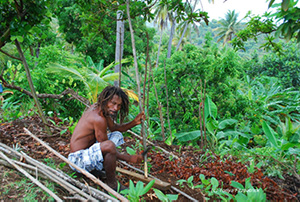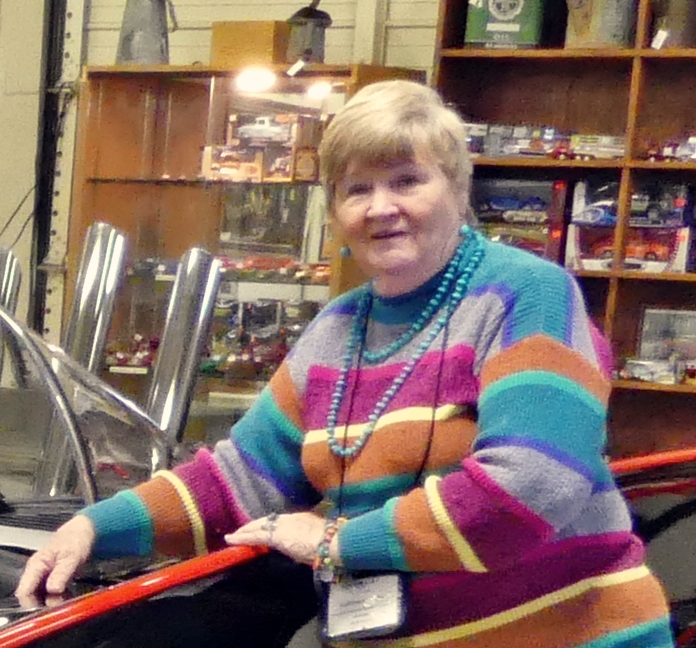Koinonia Farm Raises Equality

Koinonia Pecan Grove Photo by Kathleen Walls
Posted February 7, 2025
Imagine a communal farm founded in 1942, where sustainability is put over profit and a Christian community that welcomes all people of any, or no faith, to join their community. I recently visited Koinonia Farm in Americus, Georgia, and discovered a way of life I thought died in the 19th century.
As Sue Morrison, the farm’s hospitality coordinator, showed us around the farm, we heard a bell ring. Sue led us into the small chapel and explained, “The prayer bell rings at 10 am, 3 pm in the afternoon and 8:00 pm. And wherever we are on campus, when we hear it, we’re supposed to stop what we’re doing and say a prayer. And some people, of course, that come here are not Christian. For them, I suggest having a moment of mindfulness.” That sums up the kind of inclusiveness there.
The History Of Koinonia Farm
The farm was founded by Clarence Jordan, who was somewhat unorthodox. He wrote The Cotton Patch Bible, a southern vernacular version that substitutes Atlanta for Jerusalem. Another way he was unorthodox in the 1940s and 1950s was that he believed in equality. Whites and Blacks ate at the same table and were paid the same wages. He ran into serious trouble with the KKK over that. There were bombings and boycotts, but the farm continued and prospered. The KKK tried to buy them out, but they refused.
A boycott of the farm products followed. When one store violated the boycott, the Klan bombed the store. They also bombed the farm’s roadside market, chopped down their pecan trees, and cut the fences so the farm animals would escape. That didn’t stop Koinonia. They began a mail-order business.
Habitat for Humanity International was also born here. Millard Fuller, former president of Habitat for Humanity International, and his wife and co-founder, Linda, were members of the Koinonia Community. They later formed The Fuller Center for Housing. Millard Fuller is buried at Koinonia.

Chapel at Koinonia Farm Photo: Kathleen Walls
Getting to Know the Koinonia Farm
Sue led us into the pecan orchard where giant organic trees have been growing since 1960. The pecan trees had shed most of their leaves and pecans crunched beneath our feet as Sue showed us the machines that harvested the crops and explained the process. The farm also grows blueberries and grapes to make jam, and vegetables for the residents to eat.
We asked about the people of the community. Sue explained most live either onsite or nearby. “It’s usually between 20 and 25 at any one time, though it ebbs and flows because we have interns who come for a season and then leave and we have a volunteer work program called ‘come stay awhile and serve’ where people choose to stay for one, two or three months.”
In the vegetable garden, we met Jen, the head gardener who was working with the newest crop, sugar cane. There was a small patch of collards and Jen told us they planted some little onions yesterday and some kale. Other crops grown on the Koinonia Farm include purple hull beans, cabbages, broccoli, and tomatoes in season. Some plots are planted to cover crops to enrich the soil. The farm participates in composting and uses only organic sprays. Sometimes they pick the bugs off tomatoes by hand. “The smell of the organic stuff that I’m using to get rid of the worms, the deer don’t like it,” said Jen. “So they’ve kind of stopped eating my plants. It’s like a win-win.” She added, “This garden feeds us, plus if we have any surplus, we donate to the local food pantry in Americus.”

Coffee House Mural Photo: Kathleen Walls
Discovering More of Koinonia
Sue led us through the sorting and processing area and showed us the residents’ home, the interns’ wing, and coffee house. There the ceiling featured a mural of a tree showing all four seasons–tiny birds and squirrels perched in its branches. In the kitchen where pecans transform into a variety of products, we met Geneva, the head baker.
True to the farm’s principles of not wasting anything, the kitchen machinery was old but spotless. The untraditional vintage oven displayed six platforms that revolve like a Ferris wheel. When asked how many pecan pies are baked at once, Geneva replied, “It’s about 78.” Many of the other machines dated back to the early 20th century including the batter mixer for pies and other baked goods which is over 100 years old. “We make four different kinds of granola,” explained Sue as she showed us their granola mixer with a shiny copper pot that dated back to 1919.

Koinonia Crops Photo: Kathleen Walls
All the Good Stuff
Koinonia Farm’s best selling product is chocolate candy which is initially poured out onto a table. Then, it’s cut into the 3-inch squares. Candies include milk chocolate pecan bark, dark chocolate, cinnamon spice pecans and hickory smoked pecans. During my visit, the chocolate candy had been poured and was finished for the day, but we got to sample it. The dark chocolate was my favorite. “The chocolate is grown fair trade in the country of Ghana in West Africa. From Ghana, it’s sent up to Belgium,” explained Sue. “We get it from Belgian, the finest Belgian chocolate.”
The pecans are made into a product called Hickory Smoked Pecans. Sue explained, “We have our own smoker from the old days when they raised hogs, and we had country smoked hams. But now it’s only the pecans. We use our own hickory wood from our own woods for smoking.”
The final touch was in the packing room. One of their workers had repurposed some old boxes into Halloween costumes for his kids. Talk about being self-sufficient, these people could survive Armageddon.
Click here for discounted accommodations in Americus, Georgia
Join the community!

Join our community to receive special updates (we keep your private info locked.)




